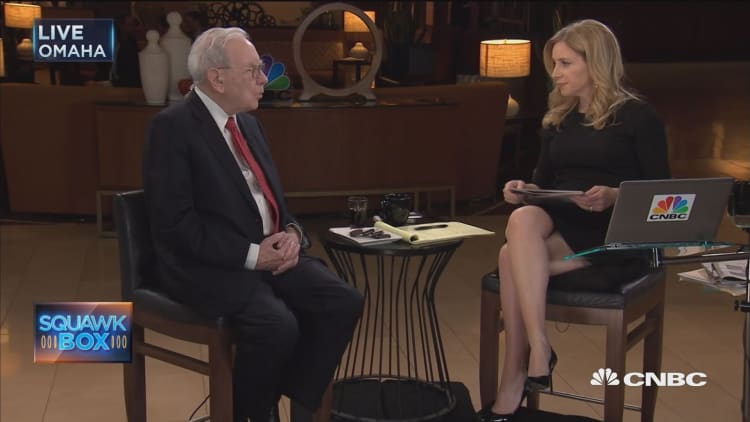
Companies are planning to devote billions to buying back their own stock this year, even though the strategy seems to be losing its bite.
Statements accompanying first-quarter earnings indicate corporations are preparing to buy a total of $600 billion in their own shares, according to Goldman Sachs calculations.
That comes after a year in which buybacks amounted to $572.2 billion, which itself was a 3,3 percent increase from 2014 and part of a trend that has seen repurchases amount to more than $2.7 trillion since 2010, data from S&P Dow Jones Indices show.
Buybacks slowed in the first part of the year, with TrimTabs reporting a 35 percent decline over 2015. However, that's not likely to last as companies struggle to find the best way to spend cash. S&P 500 companies have nearly $1.5 trillion in cash on their balance sheets.
"The main thing that determines that is whether they see their markets pop or not," said Jim Paulsen, chief market strategist at Wells Capital Management. "One of the things we really haven't had in this recovery is getting all the economic boats moving north at the same time."
With the lack of sustained economic growth, companies have turned to buybacks and dividends to pick up the slack. However, the effectiveness of returning cash directly to shareholders doesn't have the same pop it once had.
Where buybacks had helped fuel the S&P 500's meteoric rise and the second longest bull market in history, the market has been volatile but flat over the past year or so. Moreover, companies that have been the biggest movers in buybacks have underperformed significantly.
The PowerShares BuyBack Achievers Portfolio exchange-traded fund tracks companies that have bought back at least 5 percent of their shares over the past 12 months.
The ETF is down about 0.7 percent in 2016 and off 8.4 percent over the past year. The fund's biggest holdings include McDonald's, Boeing, Qualcomm, Lowes and Mondelez. A big name missing from the top holdings is Apple, which has buyback plans totaling $175 billion for a stock that is down 13.2 percent year to date and 27.5 percent over the past year.
Yet the buyback and dividend trend continues as companies remain reluctant to hire and invest in equipment and as the deal climate cools after a blistering 2015. Mergers and acquisitions activity plunged 25 percent in the first quarter, with much of the steam taken out by the collapse of multiple big-ticket deals, the most recent being the $6 billion Staples-Office Depot marriage.
"If we do get a synchronized bounce in growth, I think you'll start to see these buybacks reduced as companies start to see other uses for their cash," Paulsen said.
Indeed, the inability of stocks to break out has made buybacks a value play as much as anything else as companies find it hard to buy growth. Should the market jump higher, that could serve as an incentive to invest elsewhere.
"You've got to see a market that makes sense to expand operations in," Paulsen said. "If you think this is a pause [in the stock market] it's hard to beat that return. There is no capital investment that's going to give you that this year."



